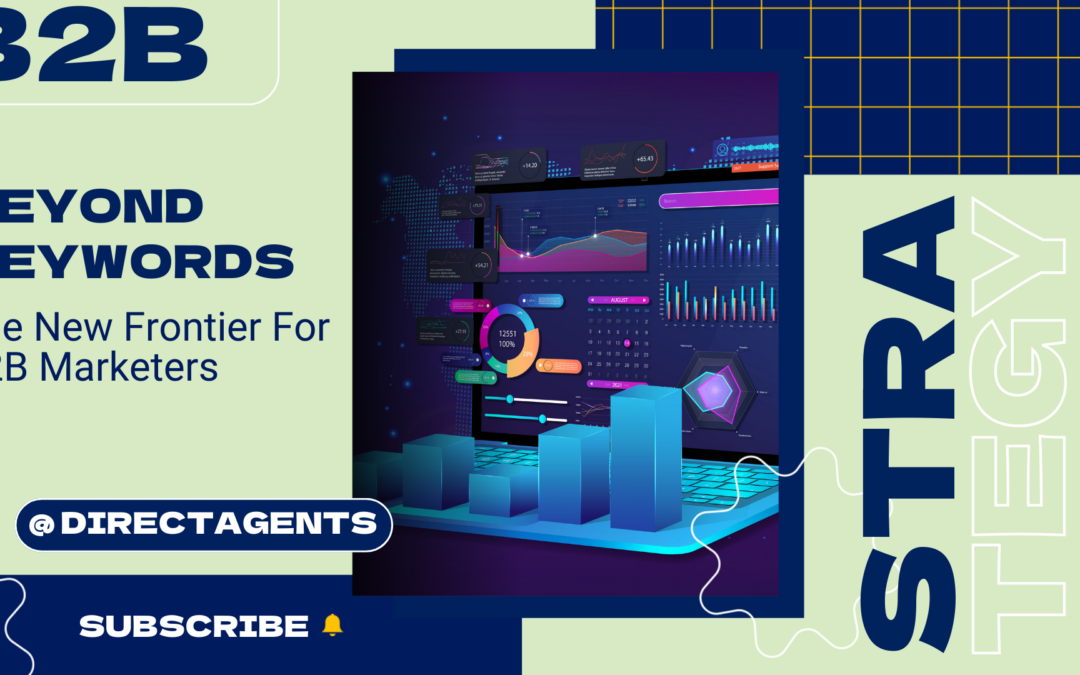For years, Google defined how B2B marketers connected with potential customers. It set the standards for SEO, shaped the world of paid search advertising, and provided detailed performance metrics. Marketers aligned their strategies with its algorithms, producing high-value content, such as thought leadership pieces and white papers. Paid search campaigns targeted users at critical moments of intent to capture leads.
Today, this model is evolving. AI-driven platforms like ChatGPT, Perplexity, and Meta’s anticipated AI search tools are transforming the landscape. What was once a single-channel approach has become a multifaceted, interconnected ecosystem, requiring marketers to adopt a new perspective on search and adjust accordingly.
Search is no longer synonymous with Google. AI platforms are embedding search capabilities into their ecosystems. Tools, like ChatGPT’s SearchGPT and Meta’s emerging integrations, demonstrate that search is becoming a standard feature across digital tools. As search weaves into diverse digital experiences, marketers must adapt to the fact that users will be performing searches wherever they are engaging digitally.
This shift presents both opportunities and challenges. Optimizing for a single platform is no longer enough. B2B marketers must evaluate how their content performs across various AI-powered tools, each with its own way of processing and displaying information.
Search as Part of a Broader Marketing Strategy
Search is evolving from a standalone channel to an integrated component of broader marketing strategies. AI platforms enable more natural, contextual interactions, turning search into a way to deliver value throughout the customer journey. Whether answering questions on ChatGPT, providing insights via Perplexity, or promoting products on Google, the search experience becomes an extension of a brand’s identity.
In this environment, SEO is less about chasing algorithms and more about establishing presence and relevance. According to Rapyd.AI, AI tools currently prioritize content that is frequently surfaced and semantically consistent, rather than relying solely on traditional authority metrics. This means brands that produce a high quantity of detailed, relevant content across blogs, social media, and websites stand a better chance of discovery—even without top-tier rankings.
Establishing Category Entry Points is another critical factor that becomes increasingly important as traditional search behavior evolves into more conversational interactions. These associations link your brand to specific needs or problems, embedding your business into decision-makers’ mental frameworks. This positioning not only increases visibility in searches but also ensures your brand remains top-of-mind during purchasing decisions.
Advertising Evolves Alongside Search
AI-driven platforms are also transforming advertising. Traditional keyword-based ads may give way to innovations like sponsored conversational responses and contextual recommendations. Marketers will need to experiment with these new formats, focusing on creating meaningful interactions where buyers seek solutions.
This transformation is reshaping competition among tech giants. Google, OpenAI, and Meta are vying to define the future of search. Google’s significant investments in its Gemini platform aim to maintain its dominance, while ChatGPT and Meta explore innovative ways for users to discover and interact with information.
As search becomes ubiquitous, Google’s continued dominance in paid advertising will rely on Gemini’s success. Meanwhile, platforms like ChatGPT could disrupt the market by introducing advanced search features paired with advertising capabilities, potentially capturing significant PPC market share. Marketers must remain agile and develop strategies that are not singularly reliant on Google’s dominance.
What B2B Marketers Should Do Next
The AI search revolution demands a strategic overhaul in content and engagement approaches. B2B marketers must move beyond traditional SEO, creating content that performs seamlessly across platforms like ChatGPT, Perplexity, and Google. Success will hinge on content density, semantic consistency, and building mental availability through strong Category Entry Points and thought leadership.
The focus is shifting from visibility to meaningful interactions tailored to how AI interprets and presents information. Marketers must integrate search into broader strategies, invest in adaptive content, experiment with conversational ad formats, and leverage AI-driven insights to understand user intent. Those who embrace these changes will not only ensure discoverability but also lead in the evolving landscape of AI-driven customer engagement and discovery.
Are you ready to reshape your B2B marketing strategy for the AI-driven search revolution? Partner with Direct Agents to craft an innovative SEO approach tailored to emerging AI-powered platforms, ensuring your brand stays visible and competitive. Contact us at [email protected] to take the next step in transforming your search strategy.
Jackson Richards, VP of Strategy, Direct Agents

